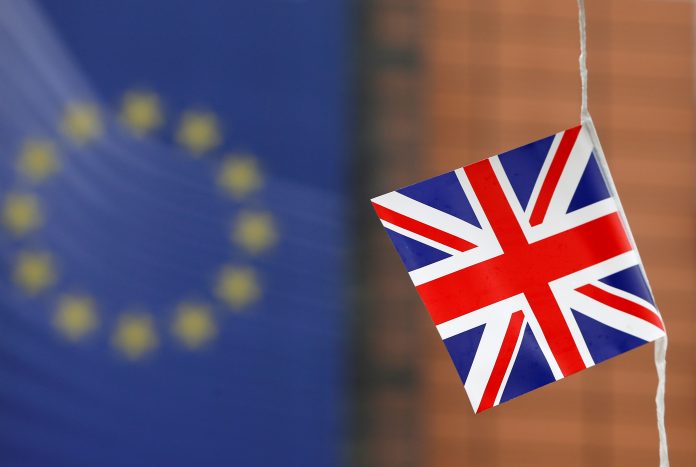Severely affected by the pandemic, the UK has imposed one of the longest lockdowns. Its gross domestic product (GDP) fell by 20.4% over the period.
Even on the catastrophic scale of the economic crisis the planet is going through this year, the statistics released by the UK are particularly poor. The decline in gross domestic product (GDP) in the second quarter reached 20.4%, according to data released by the British Statistical Office (ONS) on Wednesday (August 12th).
This is by far the worst result in Europe. Over the same period, the decline was 13.8% in France, 12.4% in Italy, or 18.5% in Spain. “This is the biggest drop in GDP on record (in the UK),” said Jonathan Athow of the ONS. Rishi Sunak, Chancellor of the Exchequer, does not try to brighten things up: “I have said in the past that hard times are coming and these numbers confirm that those hard times are now here.”
However, these data provide a slightly biased view of reality. The Covid-19 having arrived later across the Channel, confinement in the United Kingdom was not imposed until March 23, after other European countries. The shutdown of the economy therefore hardly affected the first quarter, and is fully focused on the second quarter.
It is therefore fairer to compare the economic results over the whole of the first half of the year, which smooths out this artificial calendar effect. On this basis, the British economy remains one of the worst in the world (GDP down 22.1%), but Spain is doing even less well (-22.7%), and the rest of the major European countries shows barely better results (France: – 18.9%, Italy: –17.1%). The United States (-10.6%) and Germany (11.9%) do significantly better.
This British collapse is the quasi-mechanical consequence of longer confinement than elsewhere. At the end of March, Boris Johnson hesitated for a long time to order the British to stay at home. Too much, according to Neil Ferguson, an epidemiologist at Imperial College, who estimates that half of the deaths would have been avoided if the lockdown had taken place a week earlier.
Starting error!
The consequence of these hesitations has been one of the worst human toll in the world. The UK has 46,500 deaths from Covid-19. Compared to the population, this corresponds to 70 deaths per 100,000 inhabitants. Belgium does worse (86 deaths per 100,000 inhabitants), but Spain (61), Italy (58) or France (45) do better. Symbolically, Boris Johnson himself spent several days between life and death in intensive care, before gradually recovering.
In reaction to this initial error, the British Prime Minister imposed a longer lockdown than elsewhere. While he underestimated the pandemic when it first started, he doesn’t want to repeat the same mistake when it comes out.
The reopening of England has been very gradual: non-essential stores were only able to resume service on June 15, and pubs and restaurants on July 4. Scotland and Wales have for their part imposed even longer restrictive measures, with responsibilities for health being decentralized.
Beyond confinement, the United Kingdom is more affected than the others because its economy is particularly dependent on household “social consumption”, namely leisure and going out to restaurants, bars or the theater.
Unprecedented support measures!
The real question, however, is how the country’s economy will rebound. Is the damage caused by the recession permanent? Choosing a European model, the British government announced unprecedented support measures, and created a partial unemployment system guaranteeing 80% of the salary, which currently benefits over nine million people.
The government has also launched a very popular program, offering a 50% reduction in restaurants from Monday to Wednesday (up to a limit of 12 euros per person) during the month of August: more than ten million meals have already been consumed by this way. Finally, the British increased their savings during containment, not being able to spend. They might spend that mattress if the conditions of the epidemic permit.
However, more than a million people have already lost their jobs. Bankruptcies are starting to increase. The partial unemployment system should in principle be abolished in October, raising fears of mass layoffs at the end of the year. As for the bill for the various aid plans, it promises to be gigantic: the deficit is expected to reach 18.5% of GDP this year, according to the rating agency Moody’s.
The Bank of England remains relatively optimistic, expecting GDP to return to its pre-pandemic level by the end of 2021. Data released in recent days indicates a strong, mechanical rebound in July. But the truth is, the situation is unprecedented and no one knows exactly how and when the growth will return. Economists are as lost as the others: they forecast for 2020 between – 6.6% and 12% of GDP drop, and for 2021 between + 1.5% and + 10.3%.































